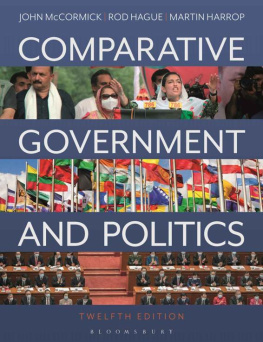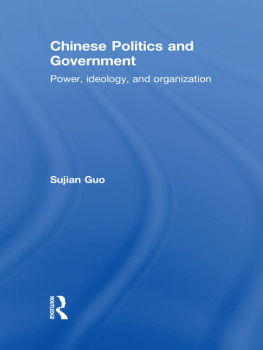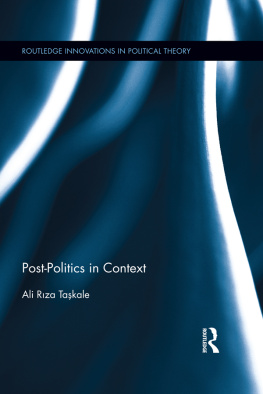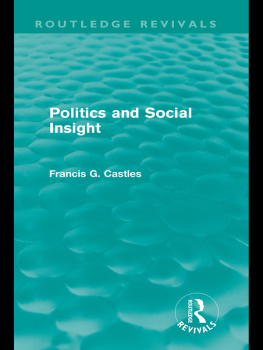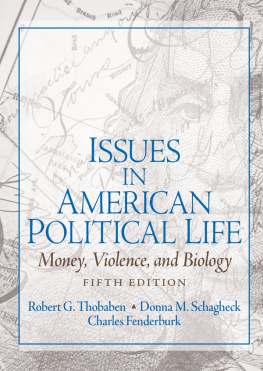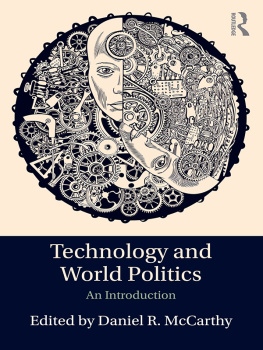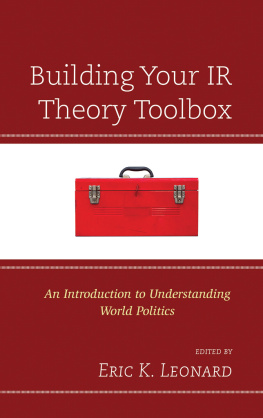Introduction to Politics and Society
Introduction to Politics and Society
Shaun Best
Shaun Best 2002
First published 2002
All rights reserved. No part of this publication may be reproduced, stored in a retrieval system, transmitted or utilized in any form or by any means, electronic, mechanical, photocopying, recording or otherwise, without permission in writing from the Publishers.
 | SAGE Publications Ltd |
| 6 Bonhill Street |
| London EC2A 4PU |
| SAGE Publications Inc |
| 2455 Teller Road |
| Thousand Oaks, California 91320 |
| SAGE Publications India Pvt Ltd |
| 32, M-Block Market |
| Greater Kailash - I |
| New Delhi 110 048 |
British Library Cataloguing in Publication data
A catalogue record for this book is available from the British Library
ISBN 0 7619 7130 0
ISBN 0 7619 7131 9
Library of Congress control number 2001 132937
Typeset by SIVA Math Setters, Chennai, India
Printed in Great Britain by The Cromwell Press Ltd,
Trowbridge, Wiltshire
Contents
Foreword
During the year 2000 I was involved in an interesting debate about the nature and purpose of sociology textbooks.* My argument was that textbooks in sociology look and feel the same; they have a similar content and layout, share similar prejudices and appear to be written largely by drawing upon earlier versions of textbooks. Sociology textbooks are written to a stnct formula and have a fairly rigid conception of which authors and theories should be included, and, more importantly, which should not be included. Not surprisingly, a number of people asked me what I thought the contents of a textbook should be like. My answer was that there should be diverse texts for diverse folks.
This book represents my vision of what a textbook should be like. I have used the traditional textbook format to look at a number of theorists and theoretical issues that are not normally addressed in an introductory text. My one deviation from the traditional textbook format is that I have moved away from the customary chapter division and adopted a similar arrangement to that of Deleuze and Guattari in A Thousand Plateaus (London: Athlone Press, 1988). This approach involves having areas (plateaus) that readers can follow in any order that they wish.
The book was written during my time as Lecturer m Sociology and Social Policy at Burnley College. I would like to thank the staff and students for the many interesting times we had together. Many of the ideas m this book were also shared with friends and colleagues in the Association for the Teachers of Social Science.
I hope you enjoy the text.
Shaun Best
______________________________________________________
*Best, Shaun, The demise of the sociology teacher, Social Science Teacher, 29(1), Autumn 1999, 2226. Replies in 29(2), Spring 2000, 123.
1
Introduction: Reading the Social and the Political
Welcome to this introductory guide to politics in the contemporary world. The text is intended for a person who needs to get a quick grasp of a range of social and political issues, together with some understanding of the theoretical background to the arguments. I have attempted to do this in a way which is not patronising, but which is simple enough for a reader coming to contemporary social and political debates for the first time to be able to follow. However, fashionable writers are often very convoluted and inelegant in the way they express themselves. Zygmunt Bauman (1999), for example, has described the contemporary world by the term Unsicherheit. This German term incorporates uncertainty, insecurity and unsafety and involves the loss of livelihood, social entitlements, place in society and human dignity (Bauman, 1999: 29). For Bauman, this state of Unsicherheit is linked to processes of globalisation and the inability of governments to have any real control over economic conditions within a nation-state.
In an effort to make such interesting and important ideas and arguments more accessible for a student readership I have included a great deal of information which is not specifically social scientific in nature, drawing on writers such as Angela Carter. The purpose of this material is simply to give you an opportunity to enhance your interpretative and evaluative skills, as well as to highlight key elements in the arguments I am discussing, with material that you may be more familiar with. From my own experience and that of the students whom I teach, many of us find reading original social theory texts daunting. How do you start to read the work of an author who often assumes that you are familiar with a range of debates, concepts and theories? How do you read authors who assume that you are familiar with every book and paper they have ever published? Moreover, how do you complete these difficult tasks in a short period of time, against deadlines for assignments and when you may have to write assignments and/or sit exams? I assume that the readers will at some point have to attempt an assignment or sit an examination in which they will be expected to discuss the ideas and arguments of the people in this book.
Before you attempt any assignment, in what many people might consider to be a very modernist fashion, you need to be clear in your own mind what the nature of the assessment criteria is. In other words, what are you expected to do in the assignment and how will your work be judged? When I was an undergraduate, some years ago, I got an essay back from a professor, with a mark that was not particularly good. I asked the professor why he had given the mark that he did. His reply was that the essay did not give him a buzz! When I asked about the criteria I should look for in order to do this, he said that I should not be upset by the poor mark, because when he was my age he had never even heard of sociology, he was too busy killing Germans. The moral of this story is simply that it is important that the assessment criteria are transparent.
Using the web sites of a number of sociology departments, I carried out a simple content analysis of the advice given to undergraduate students on how to complete assignments. Essentially, you are expected to demonstrate three skills. First, you must be able to demonstrate that you can read the work of theorists or researchers and give an outline of their fundamental arguments. I hope this book will help you develop this skill.
Second, you must develop your skill of interpretation. Quite simply, you must give your own restatement of the theory or research. This exposition is your reading, your version of what the theory or research is about. A central element of this is your ability to demonstrate your understanding of the relevant material by making a connection with other sociological material and relevant non-sociological material; for example, news events, docudrama, film and your own personal experience. You must be able to demonstrate that the ideas you are discussing have relevance outside the world of academic books and papers. This is not simply taking lines from books and papers and rewriting them in your own words, but bringing the ideas to life by discussing the lives of the people who are being theorised about, including yourself, and showing how the sociological ideas affect peoples everyday lives. Good sociology should inform you about your life; if a theory or type of research has no relevance to you or your life, then say so in your assignment. If you have a convincing justification as to why the theory or research is of little relevance to you and your life, then you are well on the way to demonstrating the third skill of evaluation. I hope this book will help you develop your interpretation and application skills.


